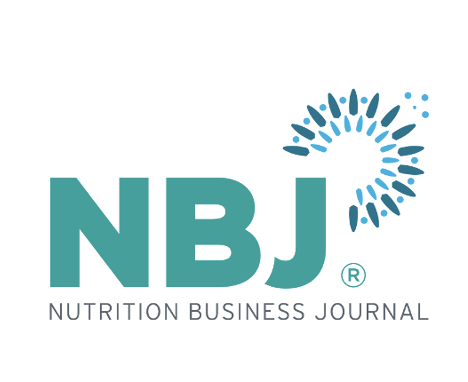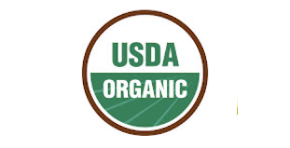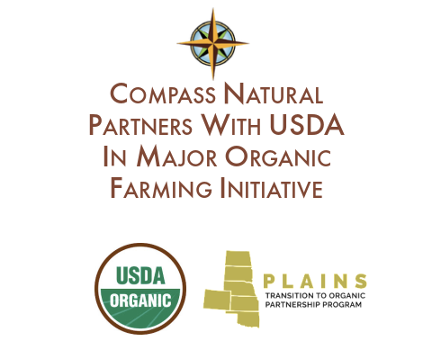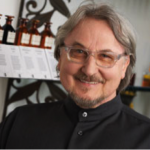The Irony of MAHA
Robert F. Kennedy Jr.’s promises to promote health don’t align with staff cuts & Trump administration actions
By Steven Hoffman
I met Robert F. Kennedy, Jr. once, in 2001, when he was speaking at a sustainability conference. At the time, I was publisher of the LOHAS Journal, covering the Lifestyles of Health and Sustainability market. At the event, I gave Kennedy a copy of our magazine and expressed my admiration for his work as a leading environmentalist with Riverkeeper, a group that helped clean up the Hudson River, and for being an outspoken advocate for removing toxic chemicals from our food.
Today, Kennedy has built a large following based on these views, with the acronym Make America Healthy Again, or MAHA, as the rallying cry for his base, many of whom are leaders in the natural health movement.
Since my interaction with him in 2001, however, Kennedy has also become synonymous with the anti-vaccine movement. This single voter issue, based in large part on misinformation and mistrust, drove a significant number of natural health advocates to back Kennedy when he declared in 2023 as an independent third-party candidate for president. When he ended his candidacy and endorsed Donald Trump in August, many of these natural health voters went with him in hopes that he could change the food and healthcare system for the better as Secretary of Health and Human Services (HHS) under the new administration.
Unfortunately, Kennedy’s rhetoric is often profoundly at odds with his actions, and with the actions of the wider Trump administration. To cite just one example, while Kennedy says he seeks to improve Americans’ health by bettering their diet, the administration he serves is gutting programs that provide local and organic produce to schools and low-income residents. Likewise, promises to make Americans “healthy again” is at odds with the administration’s roll-back of regulations designed to limit pollution.
Then there are Kennedy’s ideas about vaccines.
Vaccines and vitamins
About the time I met Kennedy, it was reported that the U.S. had eliminated measles due to widespread vaccination efforts. Since then, the anti-vax movement has picked up steam, encouraged in part by Kennedy’s anti-vaccine comments over the years. Now, in 2025, under his watch as head of HHS, the disease has reappeared in the U.S., spreading from a community in Texas to more than 700 cases throughout the U.S. and two reported deaths. Moreover, Kennedy was an anti-vax advocate during a deadly measles outbreak in Samoa in 2019, which killed 83 people in a population of 200,000.
Frankly, no amount of vitamin A—a nutrient Kennedy touted in a March 4 interview on Fox News as a treatment for measles—will stop its spread. Yet, a week after the interview, when he touted the “very good” results of treating measles with vitamin A-rich cod liver oil, demand for the product skyrocketed in Texas, Yahoo News reported. Now, a number of measles patients in Texas are showing signs of vitamin A toxicity, according to the New York Times, which noted that children being treated for measles at Covenant Children’s Hospital in Lubbock, Texas, included “a handful of unvaccinated children who were given so much vitamin A that they had signs of liver damage.”
Kennedy’s conflation of anti-vaccine messaging and unsubstantiated claims about using nutritional supplements as a cure for highly infectious diseases does a major disservice to the dietary supplement industry, the health care industry—and to consumers.
In fact, the Council for Responsible Nutrition (CRN) was so concerned about how the credibility of nutritional supplements might be affected that it issued a statement on March 26: “While vitamin A is an essential nutrient that plays a critical role in supporting vision, growth, reproduction and immune function, it is not a substitute for vaccination. While vitamin A plays an important role in supporting overall immune function, research hasn’t established its effectiveness in preventing measles infection.”
Andrea Wong, senior vice president, scientific and regulatory affairs for CRN, said, “Measles is a serious and highly contagious viral disease that can lead to severe health complications. Treatment and care for measles should always be conducted under the guidance of a qualified healthcare practitioner. Consumers must make informed decisions and consult qualified health professionals before giving supplements to children—especially in large doses.”
Citing that it was becoming difficult to work with the new HHS secretary, the FDA’s top vaccine official, Dr. Peter Marks, submitted his resignation on March 29, saying he was willing to address Kennedy’s concerns about the safety of vaccines but concluded that it was not possible. “It has become clear that truth and transparency are not desired by the secretary, but rather he wishes subservient confirmation of his misinformation and lies,” Marks wrote in his resignation letter. Marks oversaw the FDA’s rapid review and approval of COVID-19 vaccines during the pandemic and is credited with coining the name and concept for “Operation Warp Speed” under President Trump’s first administration.
Office exodus
The same day, Kennedy announced he was cutting an additional 10,000 jobs from the Department of Health and Human Services, which oversees several agencies, including the National Institutes of Health, the FDA and the Centers for Disease Control and Prevention. The latest cuts come after the departure of roughly 10,000 employees over the past few months as a result of the drive by the so-called Department of Government Efficiency (DOGE) to cut jobs throughout the federal government. In total, the cuts amounted to approximately 25% of HHS’s total workforce being eliminated.
The job cuts, allegedly designed to improve efficiency, may well end up costing the government money. “There’s this narrative being spun that somehow by eliminating jobs and functions that taxpayer dollars are going to be saved or that programs will be more efficient,” a staffer with the Centers for Medicare and Medicaid Services who asked for anonymity told Politico. “The reality is the exact opposite.”
Previous cuts to the FDA by DOGE, led by billionaire Elon Musk, resulted in the resignation in February of James Jones, FDA’s Deputy Commissioner in charge of food safety and nutrition, including dietary supplements, following what he called “indiscriminate” layoffs of dozens of food safety inspectors. Jones said the cuts would make it “fruitless” to continue in his role. “I was looking forward to working to pursue the department’s agenda of improving the health of Americans by reducing diet-related chronic disease and risks from chemicals in food,” Jones wrote.
Following news of DOGE’s February cuts at the FDA, which included a number of staff firings at the FDA’s office of Dietary Supplement Programs, CRN expressed concern about the federal agency’s ability to effectively oversee dietary supplements and food safety. “As the FDA deputy commissioner steps down, it’s critical that the agency maintains adequate staffing and expertise to uphold consumer confidence in the food supply,” CRN said in a statement.
“While staffing changes can occur during any presidential transition, it is critical that the FDA maintains the resources, expertise and staffing levels necessary to ensure effective dietary supplement oversight that undergirds consumer confidence in the supplement market,” said Jeff Ventura, CRN’s vice president of communications.
Growing problems
Meanwhile, at USDA, pauses and cuts to funding for school lunch programs, supplemental nutrition assistance programs and organic farming initiatives run counter to MAHA’s avowed efforts to improve public health. Pauses in funding for organic transition and soil conservation programs are leaving farmers on the hook for millions of dollars they invested on the promise of reimbursement, while “accidental” firings of bird flu researchers have raised concerns that the beginnings of a new pandemic may go undetected.
According to reporting by E&E News by Politico in February, federal officials have been withholding funding for two major organic agriculture programs that make payments directly to farmers, jeopardizing millions of dollars in funding ahead of the 2025 planting season. “The pause on the $85 million Organic Market Development Grant program and the $100 million Transition to the Organic Partnership Program has jolted farmers, nonprofits and businesses struggling to make planting and hiring decisions. Even if the pause on funding is lifted, it could put farmers out of business,” wrote reporter Marcia Brown, who noted that the USDA has yet to release funding for the programs, even though federal courts ordered an end to the across-the-board freeze.
USDA’s Supplemental Nutrition Assistance Program (SNAP), formerly known as the Food Stamp program, is under DOGE scrutiny, while the House of Representatives budget plan seeks to cut up to $230 billion from SNAP. Such funding cuts would affect sales for natural and organic food producers, including for such healthy staples as organic dairy and plant-based foods that are frequently purchased by SNAP recipients.
On March 10, USDA Secretary Brooke Rollins announced the cancellation of $1 billion in federal funding that gave schools and food banks money to purchase food from local farms and ranchers. According to Kevin Hardy, a reporter with Stateline, the funding boosted business for more than 8,000 farmers, providing local food to food banks and schools. “The Trump administration is killing the programs, despite HHS Secretary Robert F. Kennedy Jr.’s campaign against processed food, which he says is poisoning Americans,” Hardy wrote.
When it comes to our food system, we are all for getting the chemicals out of food, and the FDA’s announcement in January that it would ban Red Dye No. 3 from food products is to be celebrated. Now, if only Kennedy and the Trump administration could start focusing on the other 9,999 questionable chemicals allowed in commercial food production.
Overall, it is difficult to square Kennedy’s rhetoric with the on-the-ground actions of the administration he serves. And that, to me, is the painful irony of MAHA.
Steven Hoffman is Managing Director of Compass Natural, providing public relations, brand marketing, social media and strategic business development services to natural, organic, regenerative and sustainable products businesses. Contact steve@compassnaturalmarketing.com.
World-Renowned Agricultural Experts to Gather for ‘Focus on the Farmer’ Symposium in Denver
Event will educate farmers and producers on all aspects of navigating the organic certification process
BOULDER, Colo. (Oct. 24, 2023) — Farmers, agriculturists, producers and others interested in best practices for transitioning to organic are invited to attend the Focus on the Farmer Live educational and networking symposium in Denver on Nov. 9.
This free, daylong event is presented by Boulder, Colorado-based communications agency Compass Natural in partnership with the Colorado Department of Agriculture (CDA), Colorado State University (CSU) and the USDA’s Transition to Organic Partnership Program (TOPP). The symposium will bring together world-renowned experts in organic agriculture to share must-have information and resources with anyone on the journey of transitioning to organic production.
Focus on the Farmer Live, which will be held from 9 a.m. to 4:30 p.m. Thursday, Nov. 9 at the new, state-of-the-art CSU Spur Campus at the National Western Center in Denver, is the culmination of the four-part Focus on the Farmer series presented in 2023 by Compass Natural and TOPP.
“We’re honored to have been selected as one of the partners working with TOPP in the Plains States, and are thrilled to be working closely with the CDA’s organic program and leading researchers and educators at CSU to deliver a content-dense Focus educational program,” said Steven Hoffman, founder of Compass Natural.
Focus on the Farmer Live will feature keynote speaker Dr. Gene Kelly, professor of pedology at CSU and director of the U.S. National Committee for Soil Sciences. Panelists include CDA inspector Brad Spelts, Colorado manager of the New Agrarian Program Taylor Muglia, CDA soil and health expert Kristen Boysen, Bish Enterprises owner Andrew Bish, Rocky Mountain Hemp President Ryan Loflin and experts from Rodale, FSA, the Savory Institute and other top agencies.
This robust educational program will cover the following topics:
~ Navigating the Certification Process
~ Tech Innovation
~ Soil & Crop Health
~ Resiliency & Climate Change
~ Alternative Crops
~ Livestock & Plains Agriculture
~ Financial Resources
Lunch provided by the Organic Sandwich Company and tours of the Spur TERRA building will be available. The event will conclude with happy hour at the Sundown Saloon. Livestream will be available for participants who would like to join virtually.
Read more about Focus on the Farmer Live and register for free here.
About Compass Natural
Based in Boulder, Colorado, Compass Natural is a communications agency serving the market for organic food and agriculture, as well as businesses and brands providing natural, socially responsible, eco-friendly and other healthy lifestyles products and services. Founded in 2001 and driven by a commitment to create a better world through business, Compass Natural is a leader in the Lifestyles of Health and Sustainability (LOHAS) market.
About TOPP
The Transition to Organic Partnership Program (TOPP) is part of the USDA Organic Transition Initiative and is administered by the USDA Agricultural Marketing Service (AMS) National Organic Program (NOP). The $100 million, five-year TOPP initiative is designed to foster organic agriculture and make much-needed technical assistance available to transitioning and existing organic farmers.
Media Contact
Steven Hoffman, Compass Natural, steve@compassnatural.com, tel 303.807.1042
‘Where’s the Money?’ – Focus on the Farmer Educational Series to Cover Financial Assistance for Farmers Transitioning to Organic
BOULDER, Colo. (Sept. 15, 2023) – As part of USDA’s Transition to Organic Partnership Program (TOPP), Compass Natural’s Focus on the Farmer educational series will offer a free webinar on Sept. 28 to support farmers transitioning to organic.
The webinar, the second in a series of four events hosted by Compass Natural in 2023, will gather top experts in organic agriculture, investment and finance to discuss investment, loan and funding opportunities for transitional and organic farmers, including government and grant programs to help cover the costs of transition and obtaining organic certification.
Webinar: WHERE’S THE MONEY?
Date: Thursday, Sept. 28, 2023, 10:30 am-12 pm MDT
Register: Register for free here. All registrants will receive a copy of the speaker presentations and a link to the Zoom video recording.
Panelists include:
Jayce Hafner, Co-Founder and CEO, FarmRaise
Co-founder and CEO of FarmRaise, Jayce Hafner grew up on a small livestock farm. She created FarmRaise to provide “farmer-friendly financial tools” and to help find funding and grants to support the transition to organic agriculture and more. Tracking tax and carbon credits, USDA grants and other programs, FarmRaise keeps farmers apprised of funding opportunities and helps them manage their business and finances.
Brandon Welch, Co-Founder and CEO, Mad Capital
Brandon Welch is co-founder and CEO of Mad Capital, providing customized loans and financing created for transitioning, organic and regenerative farmers. Replacing traditional loans and farm debt with capital that enables the transition to organic, Brandon is working to regenerate land at scale by providing long-term and tailor-fit credit to help farmers navigate the challenges of transitioning. He has experience in underwriting, credit, raising private funds, portfolio management and business building.
Emma Fuller, Co-Founder, Fractal Ag
Dr. Emma Fuller helped co-found Fractal Ag, which invests alongside farmers by taking passive, minority stakes in land that farmers already own. Farmers receive needed capital to invest in their operations, while investors access high-quality farmland that remains in the hands of the farmer. Farmers decide how to use the capital to best grow their business. Fractal discounts the cost of capital for farmers who have introduced regenerative practices, regardless of when they adopted them. Emma received her Ph.D. in Ecology and Evolutionary Biology from Princeton.
Claire Mesesan, Chief of Staff, Iroquois Valley Farmland REIT
Claire Mesesan is chief of staff at Iroquois Valley Farmland REIT, a public benefit corporation. Iroquois Valley provides land security to organic farmers through long-term leases, mortgages and operating lines of credit. Iroquois Valley supports the organic transition through its products, offering a discounted lease rate during the organic transition and interest-only mortgages for the first five years, and supports soil health and conservation projects through its in-house grant program.
Mark Retzloff, former president of the Organic Trade Association and co-founder of Horizon Organic Dairy, Greenmont Capital Partners and Alfalfa’s Market, and Steven Hoffman, founder of Compass Natural and a former Peace Corps volunteer and USDA agriculture extension agent, will serve as co-moderators.
“Our ultimate goal is to support and educate farmers during their journey to organic certification,” says Steven Hoffman, founder of Compass Natural. ”Financing is inevitably a top concern and we are thrilled to have such seasoned leaders sharing information with farmers and producers to help them navigate the process.”
About Compass Natural
Based in Boulder, Colo., Compass Natural is a communications agency serving the market for organic food and agriculture, as well as businesses and brands providing natural, socially responsible, eco-friendly and other healthy lifestyles products and services. Founded in 2001 and driven by a commitment to create a better world through business, Compass Natural is a leader in the Lifestyles of Health and Sustainability (LOHAS) market.
The “Focus on the Farmer” educational series is produced by Compass Natural in partnership with USDA’s Transition to Organic Partnership Program (TOPP) in the Plains States region. TOPP is designed to foster organic agriculture and make much-needed technical assistance available to transitioning and existing organic farmers.
About TOPP
The Transition to Organic Partnership Program (TOPP) is a program of the USDA Organic Transition Initiative and is administered by the USDA Agricultural Marketing Service (AMS) National Organic Program (NOP).
Media Contact
Steven Hoffman, Compass Natural, steve@compassnatural.com, 303.807.1042
Compass Natural Marketing Partners With USDA in Major Organic Farming Initiative
Leading natural and organic marketing communications agency selected to manage a series of key events to support farmers transitioning to organic
BOULDER, Colo. (Aug. 11, 2023) — Compass Natural, a Boulder, Colo.-based PR and communications agency with a deep commitment to organic and regenerative food, agriculture and the environment, has entered into a cooperative agreement to support the USDA’s Transition to Organic Partnership Program (TOPP). This $100 million, five-year program is a critical part of the USDA’s Organic Transition Initiative — the largest single investment in organic agriculture ever made by the USDA.
TOPP is designed to foster organic agriculture and make much-needed technical assistance available to transitioning and existing organic farmers. TOPP is building partnership networks in six regions across the U.S., working with trusted organizations like Compass Natural to create and administer farmer mentorship, education and community-building programs.
“We are thrilled to partner with Compass Natural on the Transition to Organic Partnership Program,” says Brandon Hill, OCIA International’s program director for the Plains Region TOPP. “As the agency has a deep connection to organic markets, it is a great fit to help make the connections producers will need to successfully transition to organic.”
Compass Natural is one of 16 select organizations partnering with OCIA International in TOPP’s Plains Region, encompassing Colorado, North Dakota, South Dakota, Nebraska, Kansas and Oklahoma. Compass Natural will manage a series of key events for farmers throughout the Plains Region during the second half of 2023. Using a contact list of more than 25,000 industry leaders, decision-makers, producers and major media members involved in organic food and agriculture, Compass Natural will bring together key experts and farmers to support the mission of the TOPP program.
‘Focus on the Farmer’ Fall Series Kicks Off With Aug. 29 Webinar
Compass Natural will kick off a Fall “Focus on the Farmer” education program on Aug. 29, 2023, with the first of a series of monthly webinars. Registration is now open. Farmers can sign up here.
August panelists will include:
· Dr. Gene Kelly, professor of pedology, deputy director of the Colorado Agricultural Experiment Station and the associate director for research in the School of Global Environmental Sustainability at Colorado State University (CSU).
· Tina Owens, senior fellow of Regenerative Agriculture, leading the Nutrient Density Alliance, a program within the Soil & Climate Alliance at Green America. Tina has been working as a sustainability leader within the organic sector since 2008 for several of the largest organic brands in the world, including enabling on-farm transition to organic and regenerative practices.
· Mark Retzloff, a pioneer in the organic and natural foods industry with a 47-year career including co-founder of Alfalfa’s Markets, co-founder of Aurora Organic Dairy, co-founder of Horizon Organic Dairy and former chairman of the Organic Food Alliance.
Live Symposium Planned for November 2023
The Fall Series will conclude with a live, one-day networking and education event in November. It will bring together world-class experts and farmers to discuss subjects related to transitioning to organic. Topics will include key organic resources, the regeneration of soil and carbon sequestration, best practices in pest control, organic farming and ranching production, and handling, financing alternatives, value-added product development and more.
Upcoming events will also highlight community-building initiatives like TOPP for Indigenous Producers; Linking Organic Consumer Packaged Goods Brands With Organic Producers in Transition; and Financing, Grant and Funding Options for Organic Producers. Technical assistance and training initiatives include TOPP for Hemp/Grain Farmers in the Plains Region, TOPP for Specialty and Produce Growers, and TOPP for Western Slope Fruit and Specialty Crop Producers.
“Compass Natural is honored, grateful and excited to be partnering with TOPP on such an important program focusing on supporting farmers as they transition to organic,” says Steven Hoffman, founder of Compass Natural. A former agricultural extension agent and graduate of Penn State University, a land grant college, Hoffman adds, “We look forward to educating farmers about the true value of organic in building resiliency in their farm operations.”
About Compass Natural
Based in Boulder, Colo., the “Epicenter of the Natural Products Industry,” Compass Natural is a boutique communications agency serving the rapidly growing market for natural, organic, socially responsible, eco-friendly and other healthy lifestyles products. Founded in 2001 and driven by a commitment to create a better world through business, Compass Natural is a leader in the Lifestyles of Health and Sustainability (LOHAS) market.
About TOPP
Transition to Organic Partnership Program (TOPP) is a program of the USDA Organic Transition Initiative and is administered by the USDA Agricultural Marketing Service (AMS) National Organic Program (NOP).
Media Contact
Steven Hoffman, Compass Natural, steve@compassnatural.com, tel 303.807.1042
Horst Rechelbacher: Game Changer in Cosmetics, 1941 - 2014
Horst Rechelbacher, founder of Aveda and a game changer in the cosmetics world advocating for beauty products that are healthier for people and the planet.
Source: Pexels
This post is dedicated to Horst Rechelbacher, founder of Aveda and a game changer in the cosmetics world advocating for beauty products that are healthier for people and the planet. Horst also founded Intelligent Nutrients, a line of impeccable body care products so organic and clean you could eat them. Horst passed away peacefully at his home in Osceola, WI, on Feb. 15, 2014, at the age of 72. I met Horst in 2007 when I served as Director of The Organic Center, a nonprofit organization dedicated to advancing scientific research and education about the benefits of organic food and farming. Horst was a major benefactor of the Center, and in working together at The Organic Center and subsequently as advocates of GMO labeling, we became friends. In visiting with him and his wife Kiran on numerous occasions in Minneapolis, Wisconsin and elsewhere, I learned more of his business philosophy, his commitment to health and the environment, his approach to product formulations, marketing, style and art, his great love for people and the planet, and his kindness and generosity. He enriched the world as much as he was enriched by what he did for it, and us. Though I only met him later in life, he left a great influence, and his friendship is a gift I will treasure.
In April 2012, we had the great honor of featuring Horst as the keynote speaker of At the Epicenter, a quarterly entrepreneurship speaker series my company produces in partnership with Best Organics Inc., a leading brand promotions and organic gift basket provider based in Boulder. In this 14-minute video segment, conducted in a CEO-armchair style interview with Seleyn DeYarus, CEO of Best Organics, Horst shares his story and his approach to business and life.
Born in Klagenfurt, Austria, Rechelbacher learned about the plant world from his mother, an herbalist. That knowledge became the centerpiece of his career and a passion that grew through the decades. An award winning hair stylist by the age of 14, Horst emigrated to the US in the 1960s, settled in Minneapolis and founded Aveda after formulating shampoos in his kitchen for clients who wanted more natural, earth friendly products. Horst was also a prolific artist, photographer and art collector, and he supported a number of causes related to health, clean cosmetics and the environment. Horst sold Aveda to Estee Lauder for $300 million in 1997, after building it into an international brand. With Intelligent Nutrients, he kept pushing the boundaries of organically produced beauty care.
“He saw himself as an environmentalist, and increasingly more so over time,” Horst's wife, Kiran, told the Minneapolis Star Tribune. “He saw the plight of the planet and the ongoing damage we’re incurring. He felt that very intensely, and saw that the way he could contribute to improving that was thinking about choices people were making from the consumer point of view — their purchasing power.”
Horst was one of the early pioneers in beauty care who knew that it's not just what you put in your body, but also what you put on your body that counts, and that should be non-toxic, healthful products that were produced in an eco-responsible manner. He left a great legacy for the cosmetics industry, and health-conscious and environmentally aware consumers worldwide. Horst Rechelbacher will be greatly missed.
Read Horst's book, Minding Your Business, first published in 2008.
GreenMoney Journal: GMOs in Our Food: Do We Have a Right to Know?
Test your knowledge on GMOs in food! Compass Natural's Steve Hoffman and Nikki McCord of McCord Consulting co-authored an article in the Fall 2013 edition of GreenMoney Journal: "If you’re anything like us, you’re probably enjoying a snack while checking your email and catching up on your blogs. If you’re eating a conventionally produced snack – that is, one that is not Certified Organic or Non-GMO Verified – chances are it could be full of GMOs. Check your packaging. Did you see the label informing you of this fact? Most likely you didn’t because companies are not required to tell you whether or not GMOs are in your foods. And yet, GMOs are in about 80% of commonly processed foods. So what are GMOs and what is their impact on human and animal health and the environment? . . ."










